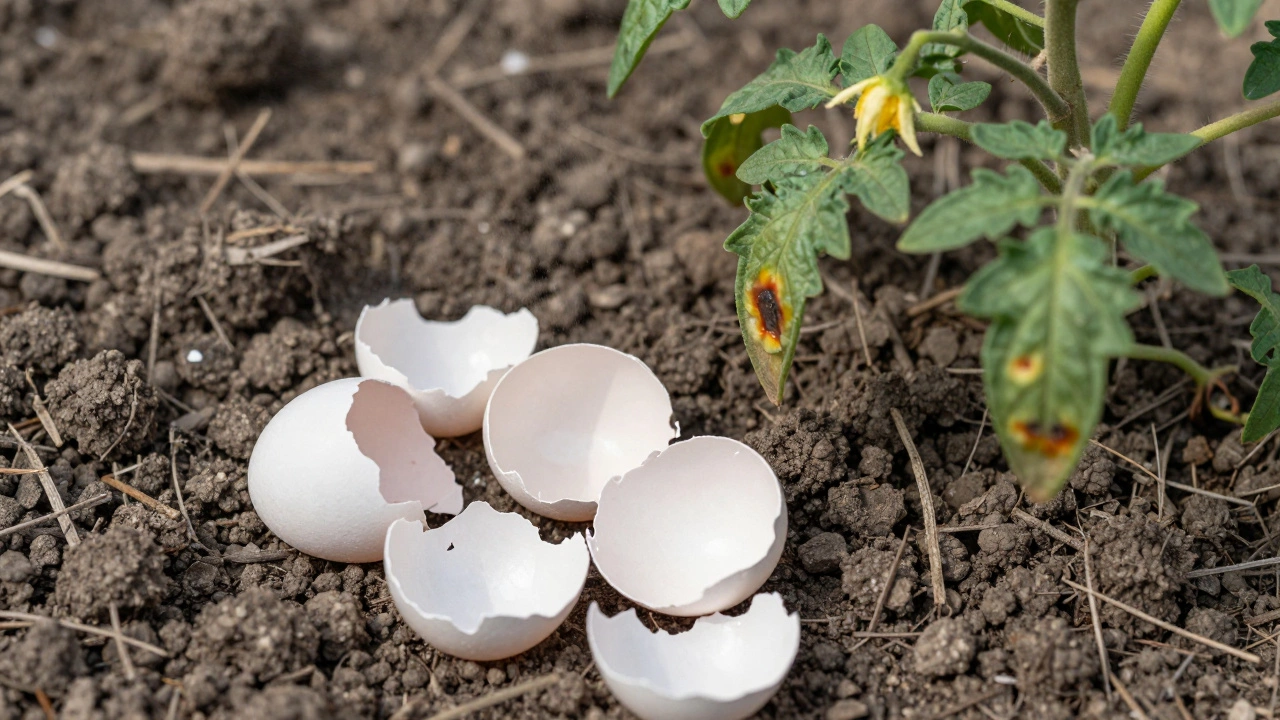Crushed eggshells won't give your plants the calcium boost you think they need. Here's what actually works for soil improvement and plant health - backed by science, not myths.
Calcium for Plants: Why It Matters and How to Use It Right
When it comes to plant health, calcium, a vital mineral that strengthens cell walls and helps plants absorb other nutrients. Also known as plant calcium, it's not just a supplement—it's a building block for healthy roots, crisp leaves, and fruit that doesn't rot before it ripens. Many gardeners in India overlook calcium until their tomatoes start turning black at the bottom or their cabbage leaves curl and die. That’s not a disease—it’s calcium deficiency, and it’s often caused by uneven watering or poor soil structure, not lack of calcium in the ground.
Calcium doesn’t move easily through plants once it’s absorbed, which means young leaves and developing fruits are the first to suffer. If your pepper plants are dropping flowers or your eggplants look pale and weak, check your soil’s calcium levels. It’s not about dumping lime everywhere—it’s about balance. Too much calcium can lock out magnesium and potassium, and in clay-heavy Indian soils, it can make drainage worse. The trick is to feed calcium slowly, through compost, crushed eggshells, or gypsum, especially when plants are actively growing. gypsum, a soil amendment that adds calcium without raising pH. Also known as calcium sulfate, it’s perfect for alkaline soils where lime won’t help. And compost, a rich source of slow-releasing nutrients including calcium, magnesium, and trace minerals. Also known as organic soil amendment, it’s the quiet hero behind most healthy gardens. You won’t see it in a fertilizer bag labeled "NPK," but it’s there, working day and night.
What you’ll find in the posts below isn’t a textbook on plant chemistry—it’s real advice from gardeners who’ve dealt with curled leaves, blossom end rot, and weak stems. You’ll learn how to spot calcium problems before they kill your crop, which Indian soils need it most, and how to fix it without spending a fortune. Some posts show you how to test your soil with simple household tools. Others walk you through using eggshells, bone meal, or even washed ash to boost calcium naturally. You’ll also see why drip irrigation can make calcium deficiency worse if not managed right, and how balcony gardeners in Mumbai and Delhi are solving this problem in small pots. This isn’t theory. It’s what works on Indian soil, in monsoon heat, and under rooftop sun.
Are egg shells good for plants? Discover if using egg shells in your garden is helpful, what science says, and easy ways to apply them for better plant health.

